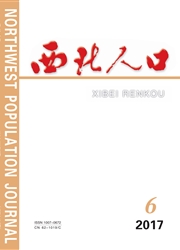

 中文摘要:
中文摘要:
青年群体对未来养老方式的选择不仅会对当前老年人的生活质量和家庭地位产生重要影响,也是加强和完善可持续的农村社会养老保障体系的重要依据。在农村妇女普遍当家的局面下,从女性的视角探讨农村家庭成员的养老意愿具有重要意义。利用课题组于2015年在湖北宜昌的调查数据,建立农村中青年已婚妇女未来养老方式选择的Multinomial Logistic模型,发现农村中青年已婚妇女更倾向于未来依靠自己养老和社会养老的方式,靠子女养老的观念明显弱化。农村中青年已婚妇女未来养老方式选择的重要影响因素有:个人客观特征,包括年龄、文化程度、户口性质、外出务工情况和参加养老保险情况;家庭特征,包括家庭经济条件、现有子女数量。研究还发现,农村中青年已婚妇女的见识广度也是影响其养老方式选择的重要因素之一。见识越广者,其观念越开放,越倾向于自己养老和社会养老。
 英文摘要:
英文摘要:
The young and middle aged people's preference for future pattems of old-age support will take a great influence on the old people in their family life and status, and provide an evidence for the rural social security system. In the case of female-headed, it have an important significant that we analysis this issue from the female perspective. Based on the state of Hubei Yichang in 2015, we have made a multinomial logistic model for women's preference and find that women preference for supporting by themselves and society, the desire for children support is weaken. The factors include personal and family characteristics like age, education, registered residence, migrate, insurance, and family economics, children. We have also found that the experience of women is an important factor. Women who have more experience preference support by themselves and society.
 同期刊论文项目
同期刊论文项目
 同项目期刊论文
同项目期刊论文
 期刊信息
期刊信息
